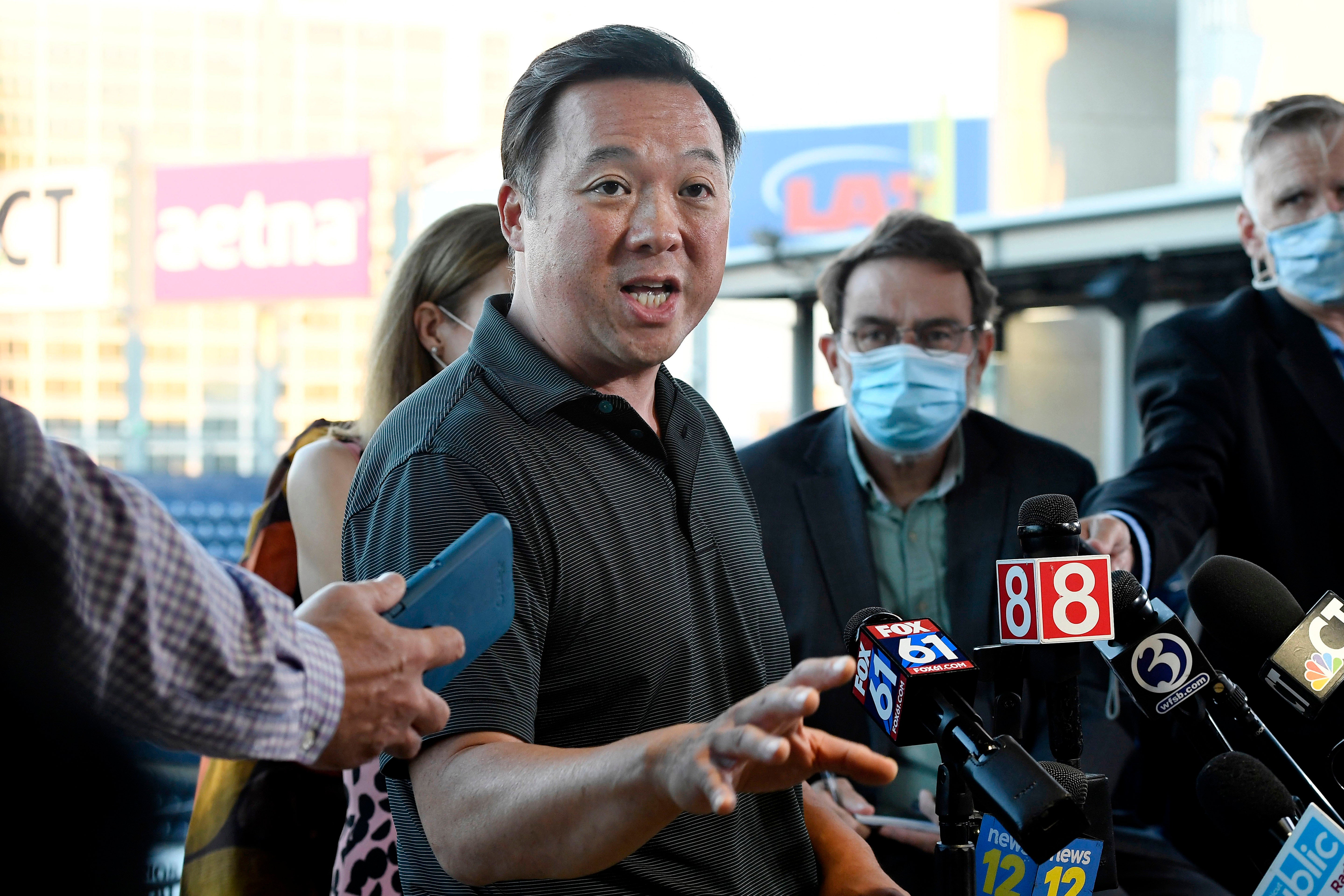Feds agree to honor Connecticut pardons, stop deportations
Connecticut Attorney General William Tong says federal officials have agreed to recognize the state's pardons as legally valid again and stop deporting people who have been pardoned for their crimes by a state board

Your support helps us to tell the story
From reproductive rights to climate change to Big Tech, The Independent is on the ground when the story is developing. Whether it's investigating the financials of Elon Musk's pro-Trump PAC or producing our latest documentary, 'The A Word', which shines a light on the American women fighting for reproductive rights, we know how important it is to parse out the facts from the messaging.
At such a critical moment in US history, we need reporters on the ground. Your donation allows us to keep sending journalists to speak to both sides of the story.
The Independent is trusted by Americans across the entire political spectrum. And unlike many other quality news outlets, we choose not to lock Americans out of our reporting and analysis with paywalls. We believe quality journalism should be available to everyone, paid for by those who can afford it.
Your support makes all the difference.Federal officials have agreed to recognize Connecticut pardons as legally valid again and stop deporting people who have been pardoned for their crimes by a state board, reversing a hard-line stance taken by the Trump administration, authorities announced Friday.
Connecticut Attorney General William Tong said the departments of Justice and Homeland Security under Trump had abandoned six decades of practice by singling out Connecticut and refusing to acknowledge its pardons — because they are issued by a board instead of the governor.
Five other states — Alabama, Georgia, Idaho, South Carolina and Utah — have similar pardon systems, but the federal government did not stop recognizing their pardons, Tong said. The five states are more conservative than liberal Connecticut.
Several Connecticut residents who were pardoned suddenly got swept up into deportation proceedings and detained. Tong's office filed legal challenges to the federal government's refusal to recognize the state's pardons and prevailed in the courts.
“This agreement affirms, with full force of law, what we have known to be true for well over a century — Connecticut’s pardons are legitimate and lawful,” Tong, a Democrat, said in a statement. “There was no reason for the federal government ever to single out Connecticut and deny our residents the second chance we chose to grant to them.”
Messages seeking comment were left with Justice and Homeland Security officials. The U.S. attorney’s office in Connecticut, which also is part of the settlement, referred questions to the Justice Department.
Federal officials had previously agreed to start recognizing Connecticut's pardons again in 2020 after Tong sued the federal agencies. But the Department of Homeland Security did not grant final approval to that deal and continued to refuse to honor the state's pardons, Tong said.
Two Connecticut residents pardoned by the state, Wayzaro Walton and Richard Thompson, were detained in federal deportation proceedings and later released after Tong's office won legal challenges.
In 2019, the Board of Immigration Appeals terminated deportation proceedings for Walton, after ruling her pardon was valid. The Hartford resident, who came to the U.S. from England when she was 4, was detained for nearly eight months as federal officials tried to deport her. She had been a legal U.S. citizen for 25 years until she lost her legal status in 2012 over larceny charges.
In 2020, a federal appeals court reversed a decision by immigration authorities to deport Thompson because he was convicted of felony assault 19 years before when he was 18, despite his state pardon.
Thompson, who lived in Bridgeport, came to the U.S. from Jamaica in 1997 when he was 14 to live with his father, who is a U.S. citizen.